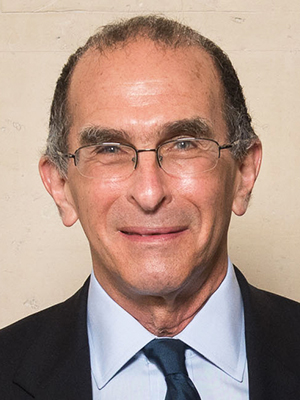Main navigation

As the COVID-19 pandemic affects people across the United States and the world, the burden of its negative public health and financial impacts have disproportionately been borne by marginalized communities. One area of study that demands further attention and research is how the pandemic affects those involved with the criminal justice system. The nature of the coronavirus presents challenges for those living and working in congregate settings like prisons. Unable to practice social distancing and with insufficient access to handwashing facilities and personal protective equipment that would help mitigate transmission, the incarcerated and correctional officers are at high risk for infection.
Criminologist Daniel Nagin (Carnegie Mellon University) spoke about these issues in a conversation published on the university’s website, “Prisoners, Police, and the Pandemic.” “When people are incarcerated in dormitory-style situations, or in cells with multiple people—and then you add in the logistics of making sure inmates get fed and their other basic needs are met—there’s no distancing that can go on for any extended period of time,” Nagin said. “Once this virus gets introduced into that kind of environment, it will inevitably spread, and then it can’t be controlled.”
Nagin discusses innovative early release programs and other strategies to reduce jail and prison populations, while also pointing to the problems that these programs face, including timing releases to avoid community spread. He also points to the need for new policing techniques and strategies, including de-escalation tactics, that would lower the risk of transmission during arrests and other encounters. Nagin notes that with courts closed nationwide, local prosecutors may avoid prosecuting certain offenses or change plea bargaining practices to shorten sentences.
Nagin believes that the COVID-19 pandemic could transform the American approach to incarceration. These changes offer promise for African American communities, who have long witnessed both the disproportionate use of lethal force during encounters with law enforcement and overrepresentation among the ranks of the incarcerated.
Daniel Nagin is the Teresa and H. John Heinz III University Professor of Public Policy and Associate Dean of Faculty and Statistics at Carnegie Mellon University. Nagin co-edits Criminology and Public Policy and chaired the National Research Council’s Committee on Deterrence and the Death Penalty. He is an elected Fellow of the American Society of Criminology, the American Association for the Advancement of Science, and the American Academy of Political and Social Science. His research focuses on the evolution of criminal and antisocial behaviors over the life course, the deterrent effect of criminal and other penalties on illegal behaviors, and the development of statistical methods for analyzing longitudinal data. His work is widely published in academic journals; he is also the author of Group-based Modeling of Development (Harvard University Press, 2005). Nagin was a visiting researcher at the foundation in 2016 and an RSF visiting scholar during the 2011-2012 academic year.





